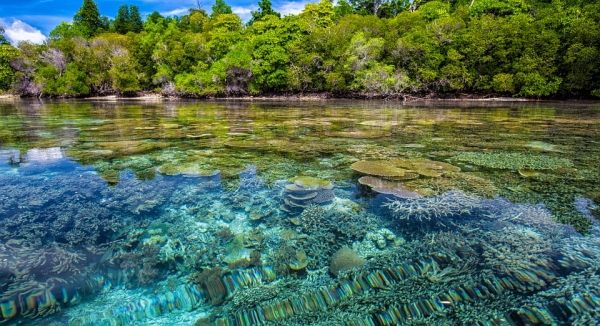A new study led by researchers at the University of Miami (UM) Rosenstiel School of Marine and Atmospheric Science found that corals that underwent a stressful temperature treatment in the laboratory for 90 days were more tolerant to increased water temperatures.
These findings offer coral restoration scientists with a new approach to potentially increase the success rate of planting nursery-raised staghorn coral onto degraded reefs as climate change continues to warm ocean temperatures, resulting in more frequent coral bleaching events. Staghorn coral (Acropora cervicornis) has died off throughout South Florida and the Caribbean, and is listed as “threatened” on the Endangered Species Act.
While previous “stress-hardening” experiments on corals have utilized exposures to short-term temperatures, the UM Rosenstiel School team assessed the effect of a long-term, variable treatment where temperatures reached a stressful level for a brief period of time, twice per day.
“This ‘training’ regime is akin to an athlete preparing for a race,” said the study’s lead author Allyson DeMerlis, a Ph.D. student at the UM Rosenstiel School. “We were able to demonstrate that this temperature treatment can boost the corals’ stamina to heat stress.”
Read more at University of Miami Rosenstiel School of Marine & Atmospheric Science
Photo Credit: Kanenori via Pixabay


